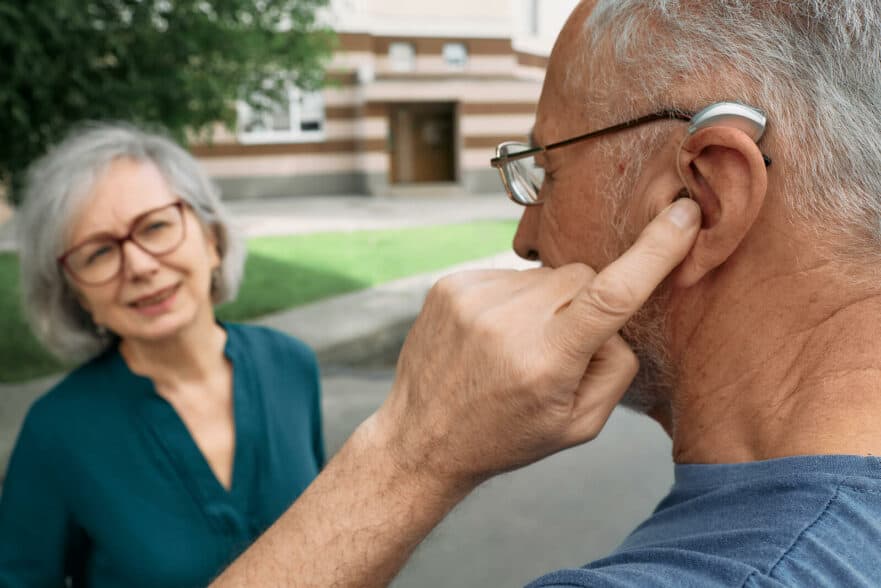- The Harm of Smoking to the Ears - April 9, 2025
- The Importance of Exercise for Hearing Health - March 11, 2025
- Movie Theaters and Hearing Aids - February 13, 2025
Hearing aids are one of the most important health investments for people with hearing loss. These devices provide ample hearing support, allowing people to navigate everyday engineers with greater ease. Hearing aids are durable devices that are long lasting but like most electronic devices, they will need to be updated eventually. So when exactly should you update your hearing aids? This is a great question that is frequently asked. To know the answer, it is helpful to ask yourself the following questions:
Have your hearing needs changed?
Hearing loss exists on a spectrum, from mild to more profound. Your hearing needs can change over time which means that the hearing aids used to treat your hearing loss may need to be updated. This highlights the importance of having your hearing evaluated regularly by your hearing healthcare provider. It is recommended that you assess your hearing annually. A great way to ensure you do this is to just incorporate a hearing test in your yearly health screenings. This allows you to monitor your hearing health effectively. Getting your hearing checked every year enables you to identify any changes you’ve experienced over time. Your hearing healthcare provider is then able to assess if your hearing aids are still meeting your hearing needs optimally. They will tailor treatment to meet your current hearing needs which may include needing to update your hearing aids to better support your hearing health in everyday environments.
Are your hearing aids not working as well?
An indication that it may be time to update your hearing aids is if they don’t seem to be working as well. You are an expert when it comes to your hearing aids and how speech and various noises should sound. You know what it feels like and sounds like to move through different spaces with your hearing aids. So you will likely notice when something seems off or if your hearing aids are not working quite the same. This can include experiencing feedback noises, your hearing aids powering off randomly, or sound not being delivered as sharply or clearly. These signs can indicate that your hearing aids need repair work or need to be replaced. It is important to have them assessed by a hearing aid specialist who can thoroughly inspect your device. They can run assessment tests and look for any damage that could be contributing to any malfunctions you are experiencing.
Hearing aids, like most things you use on a daily basis, are impacted by daily wear and tare. This impacts the longevity of your device. Most hearing aids are designed to last 5-7 years so if you are nearing the end of the lifespan of your device, they may not be working as well which also indicates that it may be time for new hearing aids.
Is your lifestyle different?
Lifestyle factors are another consideration that informs the type of hearing aid that is best for you. This includes what your social and work life looks like, any hobbies and activities you regularly engage in etc. It is important to know this because it illuminates the types of environments you regularly navigate. This reveals what your hearing aids need to be able to do in these contexts to support your hearing needs. So if any major lifestyle factors change over time, this could suggest that you could benefit from updating your hearing aids. For example, if you start a new job and the work environment is noisy, you could need hearing aids that are better designed to minimize background noise and support hearing in active settings. Be sure to discuss any changes to your life with your hearing healthcare provider.
Are you interested in new technologies?
Today’s hearing aids offer various innovative technologies that you may be interested in. This includes digital noise reduction, wireless connectivity, tinnitus management, voice recognition, and voice assistants. Be sure to explore these features with your hearing healthcare provider who can help you identify the technologies that you can benefit from.
If your answer to any of these questions is “yes”, this may indicate that it is time to update your hearing aids. Contact us today to learn more about your hearing aid options and how you can update your device.

